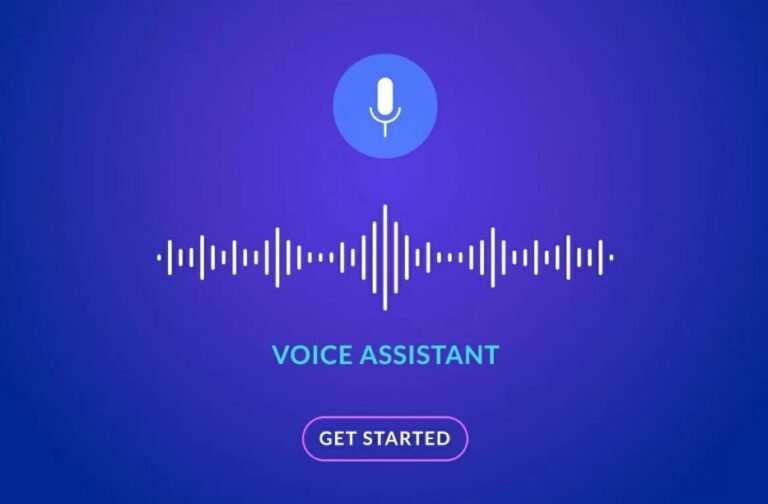The rise of technology has transformed how we interact with our environments, and voice assistants are at the forefront of this revolution. These innovative tools have made it possible for users to streamline daily tasks by simply using their voice, allowing for a more efficient and hands-free experience. Voice assistants, such as Amazon’s Alexa, Apple’s Siri, Google Assistant, and Microsoft’s Cortana, have become household names as they continue to evolve and adapt to the needs of their users. As these intelligent systems integrate into our lives, they offer an unprecedented level of convenience, enabling users to manage everything from simple reminders to complex home automation systems.
What Are Voice Assistants?
Voice assistants are AI-powered software applications that respond to vocal commands or questions, often using natural language processing (NLP) to understand user requests. These virtual companions are readily available on a variety of devices, including smartphones, smart speakers, and even home appliances. With voice recognition technology improving rapidly, these assistants can understand and interpret a wide range of accents, dialects, and languages, making them accessible to a diverse audience.
Voice assistants can perform a multitude of tasks, simplifying the user experience by eliminating the need for manual input. For instance, users can ask their voice assistant to set reminders, provide weather updates, play music, or control smart home devices. Leveraging these tools not only saves time but also enhances productivity, particularly for those with busy lifestyles or multitasking needs.
How Voice Assistants Streamline Daily Activities
One of the key benefits of voice assistants is their ability to help users manage their daily routines. With a simple voice command, users can:
1. Organize Schedules and Reminders
Voice assistants can help users manage their schedules more efficiently. By setting reminders or creating calendar events through voice commands, users can quickly keep track of appointments, deadlines, and important tasks without needing to type anything. This hands-free functionality makes it easy to update your schedule while driving or engaged in other activities.
2. Control Smart Home Devices
The growing presence of smart home technology dovetails perfectly with the capabilities of voice assistants. Users can control various smart devices such as lights, thermostats, and security systems by voice. Imagine walking into your home and simply saying, “Turn on the living room lights” or “Adjust the thermostat to 72 degrees.” This seamless integration simplifies home management and enhances comfort.
3. Streamline Communication
Voice assistants simplify communication by allowing users to send messages or make calls with just their voice. Users can say, “Send a message to John” or “Call Mom,” making it easier to stay connected with family and friends without reaching for their phone. This capability is especially useful when users are busy with other tasks or unable to use their hands.
4. Access Information Instantly
With voice search capabilities, assistants can provide instant answers to a multitude of questions. Whether users want to know the latest news, look up a recipe, or find the fastest route to their destination, voice assistants can provide information quickly and effortlessly. This immediate access to information helps users make informed decisions without spending time searching online.
5. Enhance Entertainment Experiences
Voice assistants can also enhance leisure time by managing entertainment systems. Users can ask their assistants to play music, skip songs, or even find movies and shows to watch on streaming platforms. This makes it easy to curate a personalized entertainment experience simply by using voice commands, allowing users to enjoy their favourite media without navigating through menus.
The Future of Voice Assistants
As technology continues to advance, the potential for voice assistants to further simplify tasks appears limitless. With ongoing improvements in AI, machine learning, and natural language processing, these virtual helpers are expected to become even more intelligent and intuitive. Future developments may include more complex conversational abilities, better contextual understanding, and increased integration with a wider range of third-party applications.
Furthermore, as privacy concerns become more prominent, developers are focusing on enhancing security features to ensure user data is kept safe. This balance between convenience and security will likely shape the ongoing evolution of voice assistants, making them not just powerful tools but also trustworthy companions in users’ daily lives.
Conclusion
Voice assistants have already transformed the way we approach daily tasks, offering a blend of convenience and efficiency that was previously unimaginable. As these technologies continue to evolve and integrate into our lives, the opportunity to simplify tasks further will only increase. By embracing voice assistants, users can enhance their productivity, streamline their routines, and enjoy a more seamless experience in their engaged lifestyles. As we look to the future, it is clear that voice technology will play a significant role in shaping our interactions with the world around us. So, it is important to stay informed and embrace the benefits that these intelligent systems have to offer. Let’s see what exciting developments are in store for voice assistants in the years to come!
